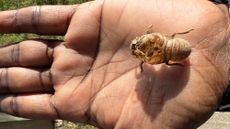This week’s travel dream: The strange, ancient land of Socotra
Located 250 miles off Yemen, the island has always been relatively inaccessible and isolated—more than 300 of its 800-plus plant species are found nowhere else.
Since the earliest times, Socotra has been “a place apart,” said Andrew Cockburn in Condé Nast Traveler. The ancient Greek historian Herodotus spoke about this island in the Arabian Sea as the place where the immortal phoenix went twice every millennium to be reborn. Marco Polo called its natives “expert enchanters” who could control the wind. The frankincense that burned in the temples of ancient Greece and Egypt was harvested here. “Roughly the size of New York’s Long Island,” Socotra is officially part of the Republic of Yemen, but “in almost every respect it is sui generis.” Located 250 miles off the often war-torn mainland, the island “retains its aura as a haven surrounded by a turbulent world.”
Socotra has been able to preserve its “splendid isolation” because it hasn’t been easy to get to. From April to October, monsoon winds “strong enough to lift children off their feet” whip the white sand on the northern shores into enormous dunes. That “recurrent inaccessibility” has helped preserve a remarkable landscape. Indeed, Socotra suggests “how the world must have looked 20 million years ago.” More than 300 of the island’s 800-plus plant species are found nowhere else. Among them: the dragon’s blood tree, a red-sapped tree whose ancestors once “carpeted the earth from Russia to Morocco.” Cucumber trees “obscenely gorged” with water also dot the island’s rocky terrain; they seem almost like cousins of the bottle tree—“a surreal object” whose bulbous trunk “tapers abruptly to little tufts of branches sprouting delicate pink flowers.”
Socotra is becoming more accessible, with one daily flight now arriving from the mainland. The island’s inhabitants, who are required to observe conservative Islamic customs, welcome outsiders despite worries about tourism’s effects. Then again, “the 2009 visitor count of 5,000 hardly qualifies” the island “as another Cancún.” And any “irritations of civilization” disappear once you begin wandering. I stumbled upon a stream shaded by a palm grove, with deep, cool pools for swimming. Socotran starlings, “their wings slashed with crimson, darted through the sky.” I had taken a step back in time.
Subscribe to The Week
Escape your echo chamber. Get the facts behind the news, plus analysis from multiple perspectives.

Sign up for The Week's Free Newsletters
From our morning news briefing to a weekly Good News Newsletter, get the best of The Week delivered directly to your inbox.
From our morning news briefing to a weekly Good News Newsletter, get the best of The Week delivered directly to your inbox.
Contact: Socotrautc.com
Sign up for Today's Best Articles in your inbox
A free daily email with the biggest news stories of the day – and the best features from TheWeek.com
Create an account with the same email registered to your subscription to unlock access.
-
 Quiz of The Week: 20 - 26 April
Quiz of The Week: 20 - 26 AprilPuzzles and Quizzes Have you been paying attention to The Week's news?
By Rebecca Messina, The Week UK Published
-
 Humza Yousaf clears the decks to battle no-confidence vote
Humza Yousaf clears the decks to battle no-confidence voteSpeed Read First minister is 'done', according to insider, but a single vote could change the balance
By Arion McNicoll, The Week UK Published
-
 Immunotherapy and hay fever
Immunotherapy and hay feverThe Explainer Research shows that the treatment could provide significant relief from symptoms for many hay fever sufferers
By Richard Windsor, The Week UK Published